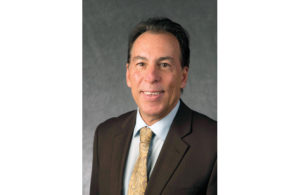Adult ADHD
Tackling the Challenges of Adult ADHD
 When I’m assessing teenagers for Attention-Deficit/Hyperactivity Disorder (ADHD), I’ll often hear a parent say, “I was just like that when I was a kid.” Sometimes, that leads to an “aha moment” when they find out that ADHD runs in families.
When I’m assessing teenagers for Attention-Deficit/Hyperactivity Disorder (ADHD), I’ll often hear a parent say, “I was just like that when I was a kid.” Sometimes, that leads to an “aha moment” when they find out that ADHD runs in families.
Now, the parents and other relatives have a name for the disruptive symptoms that started in their own childhood and carried over into adulthood—disorganization, inability to focus or concentrate to finish a task, repeated loss of keys and wallets, or having so much energy they couldn’t sit still, to name a few.
Today, ADHD affects about three million children and adults in the U.S. Patterns of inattention and hyperactivity become classified as a disorder when they significantly affect a person’s ability to function in a variety of settings and relationships. While the overall percentage of sufferers in the population is small (about 1 percent), the good news is that ADHD is highly treatable and people can be helped through a combination of medication, psychotherapy, counseling and learning strategies.
It’s never too late to get effective treatment for the disorder and, as a result, have a greatly improved life.
What Is ADHD?
ADHD is a neurobiological disorder that affects the brain’s prefrontal cortex starting in childhood. This region of the brain is responsible for controlling cognitive functions related to maintaining attention and controlling impulsivity.
While 60 percent of children go on to have ADHD as adults, all adults who have ADHD had the condition when they were children. Sometimes they don’t know it because it didn’t greatly interfere with schoolwork or show other significant signs. The condition is more common in men and boys than in women and girls, at about a 3-to-2 ratio.
People who have significant problems with attention but don’t have hyperactivity or impulsivity are classified as having Attention-Deficit Disorder (ADD).
What Are the Symptoms?
The National Institute of Mental Health (NIMH) says an ADHD diagnosis for an adult means the person had inattention/hyperactivity symptoms before age 12 and, as an adult, has at least five symptoms that interfere with functioning in at least two settings (e.g., home, work, school, social situations, etc.)
Classic adult symptoms of inattention listed by the NIMH are:
- Failing to pay attention to details
- Making careless mistakes
- Having difficulty sustaining attention during presentations, lectures, lengthy reading tasks, etc.
- Failing to follow through on instructions or finish chores or workplace duties
- Having difficulty organizing tasks and activities (e.g., is messy or has poor time management)
- Seeming not to listen when spoken to directly
- Avoiding tasks that require sustained mental effort
- Frequently losing items like keys, wallets, and phones
- Being easily distracted by unrelated thoughts, activities or sounds
- Forgetting daily responsibilities, such as paying bills, keeping appointments
Hyperactivity and impulsivity symptoms include:
- Feeling restless or unable to be still for extended periods
- Fidgeting, tapping hands or feet, squirming in seat
- Leaving one’s seat in situations when remaining seated is expected
- Being unable to engage in leisure activities quietly
- Talking excessively
- Having difficulty waiting for one’s turn, such as when waiting in line
- Interrupting or intruding on others
Because ADHD is known to be a developmental disorder, it’s minimally affected by diet or by parenting, contrary to popular belief.
How Is ADHD Diagnosed?
It may be tempting to take an Internet quiz for ADHD, but it’s best to have a professional assessment done if you think you or a loved one may have the disorder. That’s because many conditions mimic ADHD symptoms, such as anxiety or an over-active thyroid. As I tell my patients, if I talk fast and interrupt people a lot, it could be because I’m from New York and drink a lot of caffeine.
Psychiatrists begin the diagnostic process by taking a thorough medical and behavioral history from the patient and family. Sometimes, conversations with spouses, parents or even siblings can help bring to light longtime patterns of disruptive or distracted behaviors. Blood samples are tested for biological causes of symptoms.
About a week later, the doctor and patient meet to review the test results and discuss treatment approaches.
Because ADHD is rooted in brain chemistry, medication can provide the balance needed to let the brain do its job of maintaining attention and controlling impulses. Treatments commonly include Methylphenidate (Ritalin, Metadate, Concerta, Methylin), Dextroamphetamine (Dexedrine, Dextrostat), a mixture of amphetamine salts (Adderall), Atomoxetine (Strattera) and Lisdexamfetamine (Vyvanse).
ADHD patients may also benefit from counseling to help them develop coping strategies to improve organizational skills. Patients may also learn relaxation techniques—from controlled breathing to meditation to self-care—since ADHD symptoms get worse when patients are anxious.
Talk therapy can also help with feelings of low self-esteem, which may arise after years of difficulties with attention, focus, organization and other ADHD symptoms that inhibit success.
If the full mental health assessment identifies additional problems such as anxiety, depression and conduct disorders, which are common in ADHD patients, these can also be addressed through medication and psychotherapy or counseling. Appropriate support for learning disorders, if present, may also be recommended.
If you recognize your younger self in your children or other family members and your inability to concentrate, pay attention and organize your life is affecting your happiness, consider getting a formal evaluation.
There is help for ADHD, and it’s never too late.
Kevin Caputo, M.D., is chairman and vice president of psychiatry and behavioral health for Crozer-Keystone Health and lead administrator for Specialty Practices for the Crozer-Keystone Health Network. A fellow with the American Psychiatric Association, he specializes in psychotherapy, psychopharmacology and geriatric behavioral health and focuses on a wide variety of conditions, including attention deficit disorder, anxiety, depression, postpartum depression, post-traumatic stress disorder, personality disorders and medication management.

